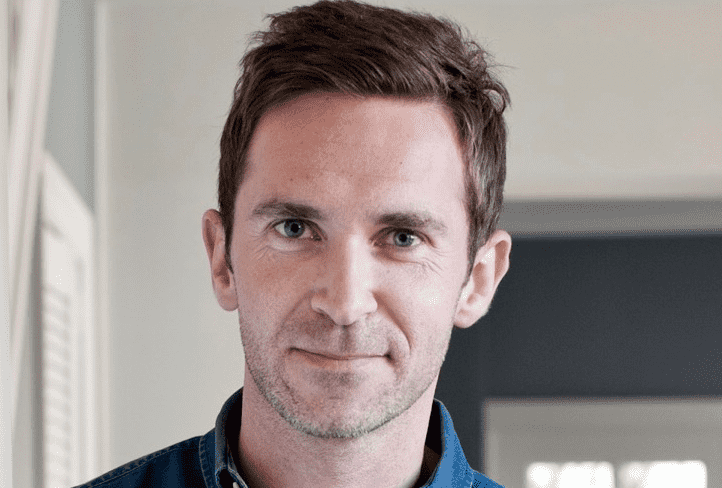Welcome to the first column by Luke Benedictus, Founder and Content Director of the-father-hood.com, a platform and community designed to help dads survive and thrive. Luke has over two decades of experience in the media industry and was previously the editor of Men’s Health, a brand he spent over 10 years with.
In his series titled The Paradox of Choice, Luke explores men’s mental health, burnout, and how to manage the mental load by giving you actionable points and his own tried and tested advice to help dads reset and reframe in 2021. In part one, Luke explores the paralysing cons of being presented with too many options.
My wife thinks I’ve given up. She reckons I’m stuck in a self-defeating rut and lack the will and imagination to dig myself out. She feels this way because of one specific habit, that, to her, is like waving the white flag on life. What is this shortcoming that maddens her so? I buy the same pair of sneakers over and over again.
Admittedly, I’m on my sixth pair of Common Projects shoes and, yes, they’ve all been identical, both in colour (white) and design (minimalist to the point of catatonic boredom). But as I’ve explained to my wife, these repeat buys are not, in fact, the tell-tale signs of mid-life resignation. They’re actually part of a deliberate strategy to maintain my mojo and beat burnout. My growing collection of duplicate trainers stems from an underlying appreciation of what’s known as “the paradox of choice”.
That phrase comes from a book, The Paradox of Choice: Why More Is Less written by psychologist Barry Schwartz. The idea behind the professor’s theory is that most of us believe having access to a greater range of choice is a positive thing that makes us happier and more content. Schwartz firmly disagrees. “Learning to choose is hard. Learning to choose well is harder,” he writes. “And learning to choose well in a world of unlimited possibilities is harder still, perhaps too hard.”
Too much choice, Schwartz argues, is overwhelming and counterproductive. He cites a study where researchers set up two displays of jams at a gourmet food store — one stand had six different jams, the other had 24. Customers were encouraged to sample the jams and were incentivised to buy with discount coupons. But while 30% of people exposed to the smaller selection bought a jam, only 3% of those exposed to the larger selection made a purchase. Bamboozled by the sheer number of jams, the second group became paralysed with indecision and (presumably) stuck to the monotony of Vegemite on toast.
Schwartz believes that rather than improving our sense of wellbeing, an abundance of choice will crank up your anxiety levels and chew up your time. He talks about the soul-destroying ordeal of buying a new pair of jeans and trying to navigate the labyrinth of fits and washes. Sifting through such boundless options — there are 2,252 pairs of men’s jeans on The Iconic’s website alone — amounts to a laborious challenge.
But Schwartz reckons a bigger problem is that your sub-conscious expectations also soar. Having a surfeit of options means failure to find the perfect pair is more likely to spark buyer’s remorse.
The principle doesn’t just apply to denim and jam. Whether it’s ice-cream flavours or Netflix comedies, a glut of choice can often lead to frustration, mental overload and disappointment. In short, it’s a mental turn-off and one that’s acutely relevant to online dating.
Dating apps dial the paradox of choice up to 11. Being confronted with infinite possibilities is exciting at first but, but once that initial frisson wears off, it quickly becomes exhausting. This was proven by Dutch researchers who found that online dating tends to follow the law of diminishing returns. Their study concluded that prolonged exposure to dating apps made their subjects increasingly negative about their available options. “The continued access to virtually unlimited potential partners makes people more pessimistic and rejecting,” they reported.
I was reminded of this recently in unusual circumstances. I’d just had a hypnotherapy session (long story) and was chatting afterwards to my hypnotist when the conversation strayed onto his unexpected side-hustle. When he wasn’t lulling his patients into a cognitive trance, this mild-mannered fellow was deeply involved in the polyamory scene and had created a dating app for likeminded folk.
Presently, he was telling me all about the thrills of the free-loving community. Hearing about his voyage of sexual liberation, part of me could definitely see the benefits. This was the have-your-cake-and-eat-it-too approach to relationships. But at the same time, the more rational part of my brain recoiled at the idea. Juggling work and a young family, I’m frazzled at the best of times. The mere thought of taking on the extra logistical and emotional complexity of multiple partners… well, it just left me feeling very tired.
When you’re drowning in a superabundance of choice, sometimes it’s simpler to edit your selection. Personally, I know I’m far happier to have made a call. Even if she really doesn’t like my choice in sneakers.







